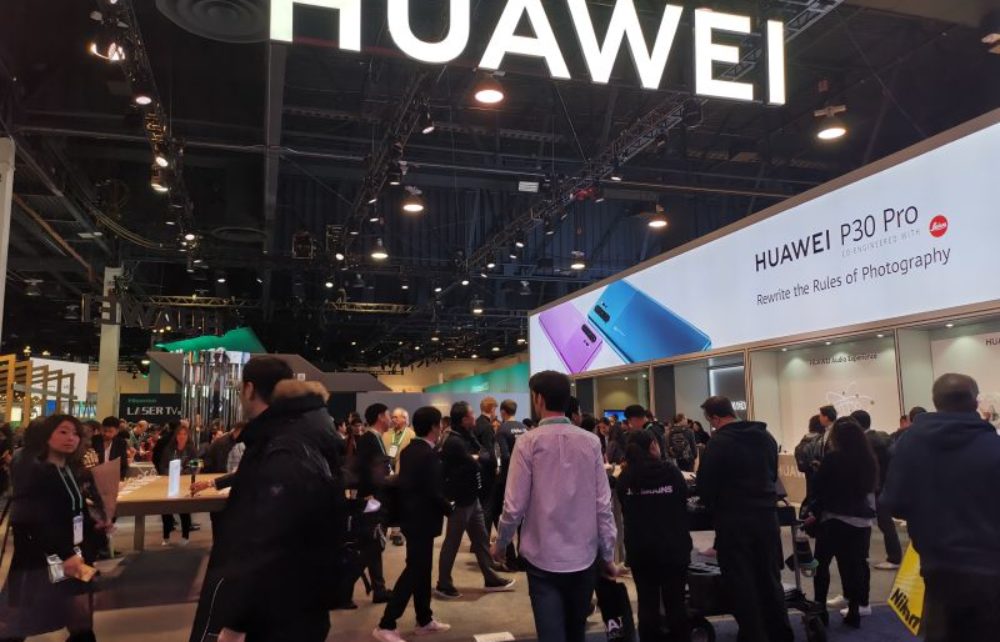The Government of Brazilian President Jair Bolsonaro appears split over the approval of the use of Huawei 5G technology in Brazil, which the US has been lobbying against.
The final decision, according to a report from newspaper Estado de São Paulo, will be made by the President himself, through a decree on the subject, based on technical and legal input from the ministries involved.
The newly created Ministry of Communications told the newspaper that “the eventual imposition of limitations on a supplier of telecommunications equipment permeates several government bodies in addition to the Ministry of Communications, such as the Institutional Security Office (GSI), the Ministry of Economy and the Ministry of Foreign Affairs, with the final decision belonging to the president “, informed the folder.
Of seven ministries contacted by the newspaper, the GSI and the Ministries of Economy, Agriculture and Science, Technology and Innovations did not to comment, as well as Casa Civil, which is responsible for bringing together the position of the different ministries. The Ministry of Foreign Affairs did not respond.
While the governments of Canada, Australia, New Zealand, India and Japan banned Huawei, the United Kingdom has imposed restrictions that are expected to evolve into a ban; Germany, France and Spain, have chosen not to restrict the company’s operations until now.
Brazilian Foreign Minister Ernesto Araújo, linked to the Government´s “ideological wing”, has made his position clear in favor of alignment with the United States and against China, according to the newspaper.
Vice President Hamilton Mourão, on the other hand, has already made it clear that he is against any restrictions on Huawei. Last year, he traveled to China, where he met with the company’s vice president and reiterated a climate of confidence with the Asian country.
The topic also concerns the Minister of Agriculture, Teresa Cristina, since China is the main destination for Brazilian soy exports. Any barrier to Huawei could have direct consequences on Brazilian agribusiness.
Economy Minister Paulo Guedes, Liberal, has said he wants the three suppliers – Huawei, Nokia and Ericsson – to compete to offer the best service to the country.
Juarez Quadros, former president of the National Telecommunications Agency (Anatel) and former communications minister, told the newspaper that Brazil has “to protect telecommunications networks to avoid situations of conflict” in terms of espionage, from all sides.
Quadros believes that the ideal would be for the government to develop a public policy that establishes security protocols in order to avoid geopolitical conflicts.
Even with the American pressure and the Chinese leadership in 5G, until now the government has not issued any norms that restrict Huawei’s operations in Brazil. In March, the GSI issued a Normative Instruction (IN) on cybersecurity, with minimum requirements for 5G. Among the guidelines is the guarantee of integrity, confidentiality and privacy.
The GSI standard also guides operators to contract, within the same geographical area, equipment from at least two different suppliers. The practice, however, is already adopted by the main Brazilian telecoms for 2G, 3G and 4G, as a commercial strategy. This Normative Instruction is being analyzed by the National Telecommunications Agency (Anatel).
Anatel is also analyzing the announcement of the 5G auction, for the right to explore frequencies to transmit the signal. The dispute is restricted to telecoms – such as Claro, Vivo, TIM, Oi and Algar, in addition to small providers – and does not concern used equipment.
Behind the scenes, the telecoms are against the restriction of Huawei’s operations in Brazil, where the Chinese company has been for 20 years. The estimate is that around 40-50% of the country’s networks have Huawei gear. In addition, a good part of the current structure can be reused in 5G.
The Parliament should enter the debate on Huawei and the security of 5G networks. Chairman of the Agriculture Commission and the Brazil-China Parliamentary Fronts and the BRICS, Fausto Pinato states that this decision must be taken jointly between the Executive and the Legislative.
Pinato proposes a technical and transparent debate on the topic and affirms that Brazil should not yield to pressures or passions. “China is no saint, but the United States has an interest in this cause. We can’t do anything just because Trump (US President Donald Trump) said. The same Trump who fights with China bought respirators there and then missed out on everybody. It’s not our fight”, he said. “Are we going to get into this fight so as not to gain anything and harm the agribusiness?”
The United States has intensified moves against Chinese Huawei and put pressure on operators around the world. Public statements to the effect by the US Secretary of State, Michael R. Pompeo, were distributed by the US Embassy in Brazil. Huawei defends itself against the charges and claims it has never had any security-related incidents in 30 years of operation in more than 170 countries.
In an official note, Pompeo defends the adoption of “reliable suppliers” for 5G. “The tide is turning against Huawei as citizens around the world are waking up to the danger of the Chinese Communist Party’s surveillance state,” he says.
The secretary cites measures announced by the Czech Republic, Poland, Sweden, Estonia, Romania, Denmark, Latvia and Greece. He also mentions initiatives taken by telecoms in France, India, Australia, South Korea, Japan, the United Kingdom and Canada. The note also highlights that Telefonica, owner of Vivo, also committed to not using equipment from “unreliable” suppliers.
Huawei claims to be a private company, with many employees as investors, in addition to private investors.
Marcelo Motta, Huawei’s director of cybersecurity and solutions, warns that Brazil could suffer “years of delay” in deploying a 5G telecoms network and higher costs if it succumbs to mounting U.S. pressure to snub the Chinese equipment supplier.




